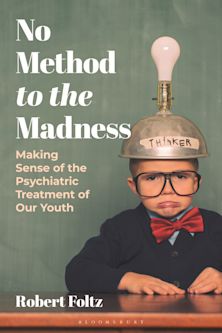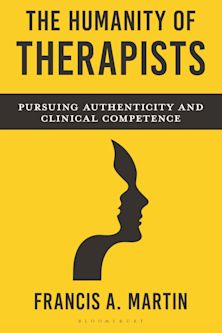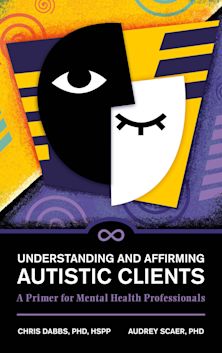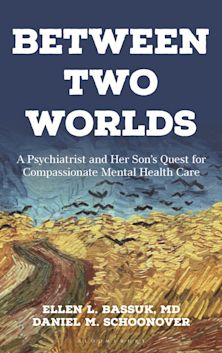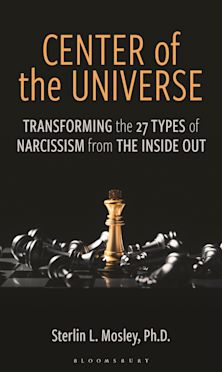- Home
- ACADEMIC
- Psychology
- Psychopathology & Clinical Psychology
- Abnormal Psychology
This product is usually dispatched within 2-4 weeks
- Delivery and returns info
-
Flat rate of $10.00 for shipping anywhere in Australia
You must sign in to add this item to your wishlist. Please sign in or create an account
Description
Giving an overview of different approaches to the assessment and treatment of psychological disorders, this textbook retains important diagnostic perspectives, including the DSM-5, ICD-10, ICD-11 and PDM. It also widens the scope of coverage beyond mainstream psychiatric models to include psychological, biological, historical, sociocultural and therapeutic approaches. Contemporary and well-balanced, this book provides an even-handed and holistic foundation, allowing students to develop a strong critical mindset while retaining a robust research-driven orientation.
Abnormal Psychology: Contrasting Perspectives:
- features an innovative structure organized by presenting problem, examining each in a broad context of traditional psychiatric and alternative approaches
- is grounded in lived experience of disorder: shining a spot-light on service-users through 'Case Examples' scenarios and 'Lived Experience' perspective pieces
- supports student learning and critical thinking through engaging 'Controversial Question', 'Try it Yourself' and 'In Depth'
- is supported by an impressive online support features including lecture slides, a test bank, instructor manual, student study guide, multiple choice self-test quizzes, flashcard activities and more.
This book is ideal for undergraduate and postgraduates students on abnormal psychology, psychopathology, mental health or clinical psychology courses.
Accompanying online resources for this title can be found at bloomsburyonlineresources.com/abnormal-psychology. These resources are designed to support teaching and learning when using this textbook and are available at no extra cost.
Table of Contents
2. Theoretical Perspectives
3. Diagnosis, Formulation, and Assessment
4. Psychosis
5. Mood Problems
6. Anxiety, Obsessions, and Compulsions
7. Trauma, Stress and Loss
8. Dissociation and Somatic Complaints
9. Feeding and Eating Problems
10. Sexual Problems and Gender Issues
11. Substance Use and Addiction
12. Personality Issues
13. Developmental Issues Involving Disruptive Behavior and Attachment Problems
14. Other Presenting Problems
15. Suicide, Ethics and Law.
Product details

| Published | 01 Nov 2018 |
|---|---|
| Format | Paperback |
| Edition | 1st |
| Extent | 728 |
| ISBN | 9781137547163 |
| Imprint | Bloomsbury Academic |
| Dimensions | 280 x 210 mm |
| Publisher | Bloomsbury Publishing |
About the contributors
Reviews
-
Raskin's textbook takes an unprecedented approach by bridging sociocultural and historical with psychological and biological perspectives in a relatable and engaging manner. Social justice perspectives and case studies, woven throughout each chapter, challenge students to think critically about each psychological disorder.
Clarissa Richardson, University of Idaho, USA
-
This is a comprehensive, easy to read and didactically well thought through textbook on abnormal psychology, suitable for introductory as well as advanced clinical courses. The book offers different explanations for clinical disorders and highlights controversies and open questions and by this encourages the student to think independently. Particularly welcome is the inclusion of DSM-5, ICD-10 and ICD-11 diagnostic criteria, which makes this book interesting for the widest audience.
Reiner Sprengelmeyer, University of St Andrews, UK
-
Raskin's text is a comfortable and informative read that students at all levels will enjoy, and even more importantly, it strikes a perfect balance between coverage of new scientific advances surrounding psychopathology as well as introductory clinical case conceptualization and treatment approaches.
Edward Selby, Rutgers, The State University of New Jersey, USA
-
I am delighted to see a book that presents key information about diagnoses, but also presents a critical analysis of the issues and ways that students can consider the person not just their problems. We have needed a text that presents contextual factors and emphasizes the importance of different perspectives. This book is an excellent resource for undergraduate teaching to start to teach and discuss these key concepts of context and continuum, cultural considerations, and a holistic model of wellbeing.
Kirsty Ross, Massey University, New Zealand














